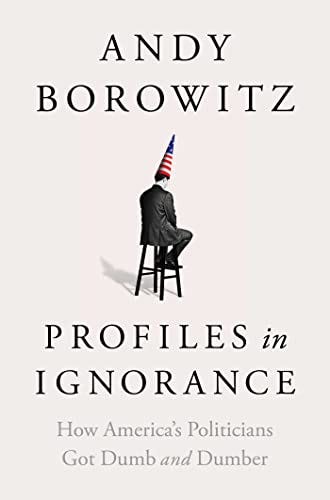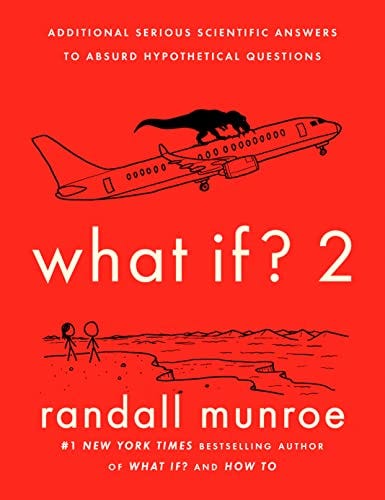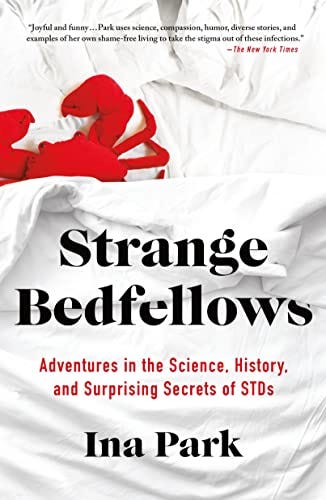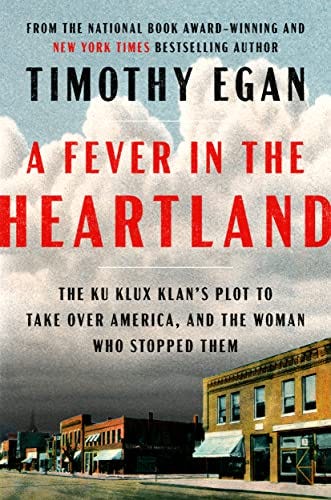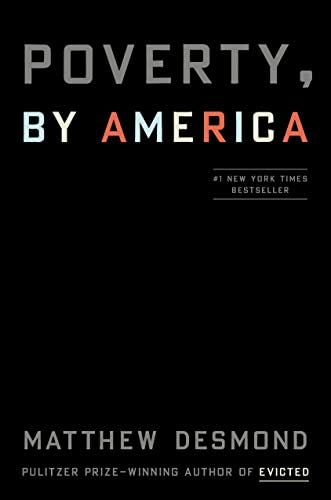Summer Reading List 2023
Solidly anchored in the land of non-fiction
Looking for some book recommendations for your summer reading list? I’m ready to offer up a few gems that should keep you entertained. As usual, my list is highly weighted towards non-fiction (highly weighted means no fiction books at all). Let’s just dive in and see if any of these might appeal to you. For those of you who are wondering about the library photo above: this is the famous cylindrical Stockholm Public Library that I had the pleasure of visiting a few years ago.
I only have six books on the list this year. Yes, I’ve been doing less (book) reading as I needed to devote more time to other activities. This includes volunteer work doing cancer patient support, and I also spend a fair amount of time writing song lyrics (hey, writing is writing, and I like to work in different mediums). Those of you who might be interested in hearing some of my songs (with music provided by a wide variety of other individuals) can check out my YouTube channel at https://bit.ly/lyricsbylyman.
Here are the books:
Profiles in Ignorance: How America's Politicians Got Dumb and Dumber by humor writer Andy Borowitz (2022). I was expecting this book to be nothing more than a collection of humorous bon mots that the author publishes on a regular basis in his Borowitz Report. Instead, this is actually a semi-serious look at the history of political stupidity and some of the really dumb things that have been said since the early days of the USA. In part it’s a look at anti-intellectualism, and how some politicians strive to paint themselves as not well educated and how they proudly wear their ignorance on a wide variety of subjects. Given the authors political leanings, the book is heavily weighted towards Republicans; you’ll either be amused or offended depending on your own political sensibilities. Yes, it’s funny, but it’s also a sad commentary of the world we live in today.
What If? 2: Additional Serious Scientific Answers to Absurd Hypothetical Questions by Randall Munroe (2022). I covered Randall’s earlier book (What if?) in a previous Summer Reading list, and this book is, not surprisingly, more of the same. Munroe (a former NASA roboticist) has a gift for coming up with some truly bizarre theoretical questions, and his answers are sometimes surprisingly in depth considering the silliness of the subject matter (such as weapon wielding dinosaurs, or what would happen if a baseball pitcher could throw a ball near the speed of light). Yes, these books are written with science nerds in mind (the primary focus in on physics and engineering questions), and I can’t imagine people who don’t match that description will get more than a few pages into the book before tossing it aside. This book is not a sequel to his previous book, so reading that first is not required. If you’re a fan of Munroe’s xkcd cartoons, and appreciate the humor there, you will likely enjoy this as well, and the book is illustrated with many of his simplistic but charming cartoons.
Junk Science and the American Criminal Justice System by M. Chris Fabricant (2022). This was a heartbreaking book that deals with inequities in the US criminal justice system. The author is an attorney for the Innocence Project, which is focused on (and has a strong record of) overturning wrongful convictions. The primary focus of this book is a look at convictions that were based primarily on dentition analysis. This is the examination of bite marks on victims and matching those to the teeth of the accused perpetrator. There’s only one problem here: this is junk science. Bite marks cannot be accurately matched to a person’s teeth. Despite this, there are a number of forensic dentists who established their reputations by claiming to be able to do just this, and as a result sent a number of men to prison (and some to their deaths). Not surprisingly, this junk science was used primarily to convict folks who were poor or minority group members. Even worse, when the junk science was shown to be useless on appeal, it was often difficult to get convictions based on this overturned. Why? It’s because our criminal justice system is simply not about reversing wrong verdicts. It’s a wonder to me that anyone bought into this sham of forensic dentistry, but we see all sorts of strange conspiracy theories that people buy into every day.
Strange Bedfellows: Adventures in the Science, History, and Surprising Secrets of STDs by Ina Park. Maybe you’re thinking: is he really recommending a book about sexually transmitted diseases (more accurately referred to these days a STIs: sexually transmitted infections)? Yes I am. The book is highly educational and frequently quite funny. The book has two major aims. One, not surprisingly, is to describe how a number of sexually transmitted organisms (both bacteria and viruses) are shared. The author, a public health expert, looks at the challenges that patients face in dealing with these infections, and those faced by doctors in trying to cure patients that have them. Some of these can be readily eradicated by antibiotics (e.g. syphilis and gonorrhea), while there are no currently no effective treatments for others, such as HIV, HPV, and herpes infections. Efforts to develop safe and effective vaccines for these diseases are discussed. The other major aim of the book is to destigmatize STIs, because the shame felt by many patients is often worse than the physical harms brought on by the infection. If you’re thinking that this doesn’t apply to you, consider the fact that about 90 percent of men and women will become infected with the human papilloma virus at some point in their lifetimes. Most of these infections will be eliminated by our immune systems, but for a small percentage of individuals, these infections will eventually lead to one of six different kinds of cancer. Think of this book as an updated and expanded version of a chapter from the 1969 book Everything You Always Wanted to Know About Sex, But Were Afraid to Ask for the 2020s. After the pandemic many people have a keener thirst for information on public health issues, and this book will help to slake that thirst.
A Fever in the Heartland: The Ku Klux Klan's Plot to Take Over America, and the Woman Who Stopped Themby Timothy Egan (2023). Books by Timothy Egan routinely show up in my book recommendations because he’s such a fine author (e.g. check out his The Worst Hard Time about the dust bowl years). This book is no exception. It’s about the rise of the Ku Klux Klan in the heartland of America, with much of the story anchored in Indiana in the 1920s. While I always think of the KKK as being primarily in the South, this book shows that there were independent KKK organizations throughout the Midwest, and that their numbers were huge. Rallies could have tens of thousands of attendees. The focus of the book is on the leader of the Midwest Klan, D.C. Stephenson, a small time grifter who rose to power on a wave of racism and who hoped to one day become President. He commanded tremendous political influence, with the police and politicians in his pocket and bribes spread widely. Much of his wealth was derived from selling KKK robes, hoods, and other merchandise. Eventually, he goes on trial for a crime that I won’t describe at it gives away one of the key surprises in the book. Nicely detailed, the book shares details of how the Sheriff’s wife makes Stephenson fabulous dinners at the jail every evening while he awaits trial. The parallels with American politics over the last decade are consistently drawn. This book is really engrossing, and we can all be thankful that Stephenson’s plans did not reach fruition.
Poverty, by America by Matthew Desmond (2023). I was a big fan of the authors previous book, Evicted, which won a Pulitzer Prize for its in-depth look at how and why people get evicted from their homes and apartments. This book takes a wider look at a problem that’s at the heart of evictions: poverty. It’s a detailed examination of people in poverty; who they are, and how they got there, and how difficult it is for them to escape. Not surprisingly, the usual subjects of racism and class warfare are behind much of what results in people becoming (and staying) impoverished. At the heart of the author’s examination of this practice: he finds that this process isn’t accidental; the system is designed to keep people poor. Poverty is a feature, not a bug in the American class system. Well written and thought provoking. The only thing that I found missing from the book were the personal anecdotes that illuminated his previous book. The discussions are all at the 30,000-foot level; the book lacks examples of specific individuals; how they became poor, and the forces that keep them there. Highly recommended.
Click on this link if you want to see my Book Recommendations list (with books divided by subject categories).



